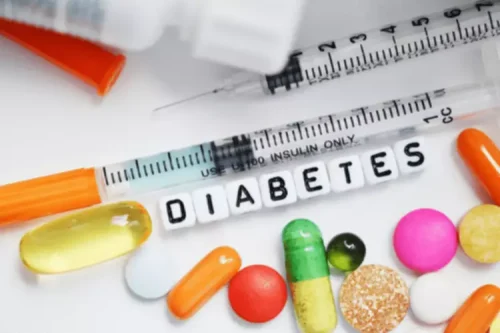
Older adults have impairments in drug metabolism and elimination, causing opioids to be more potent and have longer duration of action than predicted in older adults compared to younger adults 59. In fact, a recent study demonstrated that baby boomers have an increased risk of death from prescription opioid and heroin overdose compared to younger cohorts, suggesting more dramatic consequences of opioid misuse in older adults 60. Adverse drug events included slowed colonic motility, delirium, nausea/vomiting, fall/fracture, urinary retention, and opioid-related adverse effects 61. Routine screening and assessment will help you detect substance misuse early and accurately. The steps to guiding older clients through the continuum of care for substance misuse, including brief interventions, prevention strategies, outpatient care, inpatient rehabilitation, follow-up services, referrals, and recovery management.
- Even though rates of drug and alcohol addiction are higher among adolescents and younger adults, SUDs can and do occur in older persons.
- The consensus panel recommends the strategies discussed below, which apply to diverse clinical and service settings, for promoting wellness among older adults in recovery.
- These findings are consistent with the results of the National Epidemiological Survey and Related Conditions-III (NESARC-III), which estimated the prevalence of AUD and DUD at 2.3 percent and .8 percent, respectively (Grant et al., 2015; Grant et al., 2016).
- The provider says, “You told me that when you first got into recovery, you felt a lot of shame.
Dwindling Social Support
The overall number of older adults reporting binge and heavy drinking was likely grossly underestimated when considering that the binge threshold for older adults is typically considered to be 3 drinks per day for men and 2 drinks per day for women. A study utilizing data from the 2014–2019 National Health Interview Surveys reported that the estimated prevalence of past-month binge drinking among men 65 years or older significantly increased from 12.8% in 2015 to 15.7% 15. https://ecosoberhouse.com/ The estimated prevalence of lifetime, past year, and past month substance use in adults aged 65 and older is described in Table 1.
Change Password
Organizations should create a treatment/service environment that gives older clients the best chances for successful recovery. This means considering how the physical environment, as well as staff skills, services, abilities, and policies, can be tailored to overcome any age-related barriers. For example, some people with alcohol use disorders may occasionally binge drink, while others drink daily.
Find us on Social

Older adults can and do develop SUDs involving illicit drugs and nonmedical use of prescription medication. Many older adults take multiple medications and may be unaware of potential harms arising from substance misuse (e.g., overdose; dangerous interactions with alcohol and with other medications; increased risk of physical, mental, and cognitive problems). Age-specific, evidence-based treatments and services are available for older clients with these conditions, including SUDs involving opioids, cannabis, stimulants, and benzodiazepines and other sedative-hypnotics. This updated TIP is designed to help providers and others better understand how to identify, manage, and prevent substance misuse in older adults. This chapter discusses key aspects of alcohol misuse and the screening, assessment, and treatment of/services for binge drinking and AUD. Treatment Improvement Protocol (TIP) 26 provides a wide range of guidance in the latest evidence-based screening and assessment approaches, interventions, and services for substance misuse, including substance use disorders (SUDs), in older adults.
Links to NCBI Databases

It is critically important to address workforce shortages in rural and other underserved areas by incentivizing behavioral health providers to practice in these areas. The Coalition has identified several priorities to address the needs of older adults with mental health conditions. Ask clients to review the map and identify types of support that may be lacking and strategies for adding new network members to beef up their social support.
- When communicating screening results, you should praise clients for findings that indicate abstinence, and follow up on findings that indicate substance-related problems.
- If the information has an impact and clients are ready to act, brainstorm activities that they think are fun, easy, accessible, and personally relevant.
- Figure 2 illustrates the 5 steps that can ensure success in the treatment of substance use disorders among older adults.
Engaging older adults in chronic illness self-management programs, relapse prevention planning, continuing care, and ongoing recovery support can help them maintain long-term recovery. This chapter outlines the ways in which substance misuse can affect (and be affected by) declines in thinking, including the occurrence of dementia. This chapter will most benefit behavioral health, healthcare, and primary care service providers and prevention specialists who offer direct care to clients in behavioral health and healthcare settings and care for older adults who misuse substances. This chapter addresses how, when, and why to use screening and assessment what is the best treatment for substance abuse for older adults for substance misuse in older clients.
- Acute detoxification offers 24-hour, medically managed detoxification with emphasis on stabilization and assessment of needs.
- Ask older clients what they know about nutrition, exercise, and fall prevention for people their age.
- The number of adults 55 years and older in the U.S. who entered treatment for opioid use disorder with heroin tripled between 2007 and 2017 57.
- A plain language summary of prescription opioids that explains effects on the brain and reported use.
- The steps to guiding older clients through the continuum of care for substance misuse, including brief interventions, prevention strategies, outpatient care, inpatient rehabilitation, follow-up services, referrals, and recovery management.
- Access to health information, a key component of health literacy, enables people to better manage their health and sustain recovery.
- Explore how your clients’ understanding of spirituality relates to their overall well-being, experience of recovery, sense of meaning and purpose, health, and coping with loss, stress, or adversity.
For older clients in need of treatment, services, referrals, or some combination thereof, you should use age-sensitive and age-specific approaches to care that respect and respond to the unique needs of older adults. A wide range of interventions are available to draw from, including pharmacologic and nonpharmacologic options. For older clients with or at risk for mild or moderate substance misuse, a brief intervention may be sufficient (e.g., education, motivational interviewing).


Nearly all of us will experience changes in our thinking as we age, but substance misuse can potentially worsen normal age-related changes in cognition. Further, older people already experiencing cognitive conditions, including dementia or mild cognitive impairment (MCI), may have difficulty using substances like alcohol and prescription medications safely and according to recommended guidelines. Inpatient treatment is an option for older adults who need around-the-clock care and support while they undergo detoxification and treatment for their substance abuse problems. This type of treatment offers a safe, structured environment with constant access to medical professionals, counselors, and other mental health professionals with expertise in treating older adults suffering from addiction. As people age, their bodies undergo changes that can affect their physical and mental health. Blood flow can decrease, and relationships between neurons can change, influencing cognitive function.